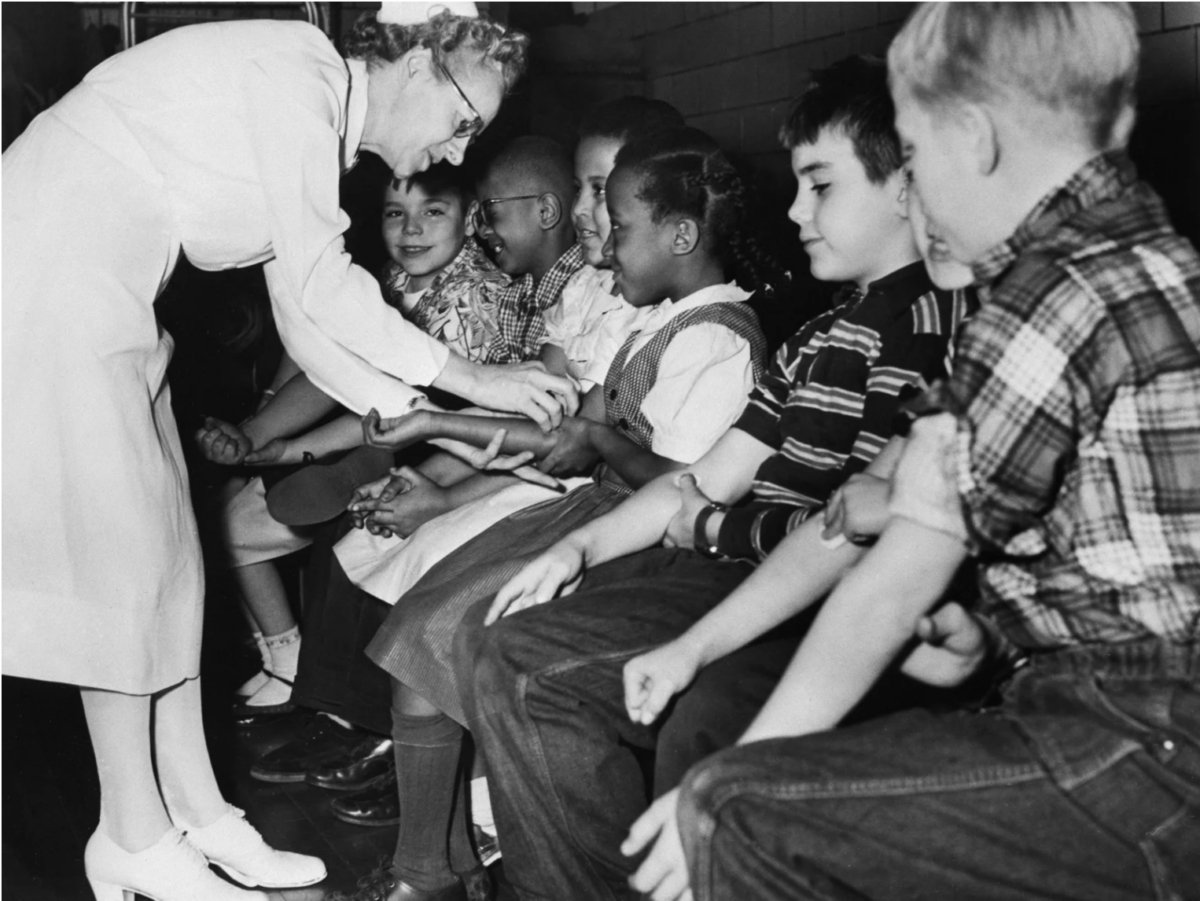Dave Pellowe
goodsauce.news

The next time someone asks you to compare your sober questions and caution about Wuhan Flu vaccines to the wonderful history of eliminating smallpox, polio, etc., you may point them to this article.
It’s blissfully ignorant to shrink-wrap decades of medical advances in infectious disease control into a single package of highly processed confectionery, but that’s not how history should be consumed.
Take for example the polio vaccine.
Poliomyelitis is a dreadful disease known also as polio, or less commonly back in the 1950s, infantile paralysis. There was considerable public fear for the health and lives of young adults and children. In most people it also caused flu-like symptoms, but in a minority it affected the spinal cord and brain, causing paralysis and sometimes death.
An epidemic in early 1900s New York killed 2,400 people and thousands more were left permanently disabled. Again in the 50s, tens of thousands of cases left hundreds of people paralysed or dead. Mass fear of polio was surpassed only by fear of nuclear war. (But no one was locked down.)
In 1955 the US government excitedly announced a breakthrough and approved the Salk vaccine for polio. Private drug companies were contracted to manufacture the vaccine and plans were made to dispense it freely to first and second grade school children across the nation.
But two weeks after the first doses were given, the Public Health Service had to announce that six inoculated children had mysteriously caught polio anyway. The number of such incidents grew, but the equivalent of the Chief Health Officer, the Surgeon General, denied any link between the celebrated vaccines and the cases of polio.
It became clear that some of the vaccines were indeed causing the disease in previously healthy children which the government and medical experts had intended to prevent. Over 200,000 children in five states received a vaccine in which the process of inactivating the live virus completely failed. Instead of giving people an easy enemy from which they could learn to safely produce natural antibodies (not at all equivalent to the unprecedented mRNA mechanism), they gave children the active and dangerous virus.
The government’s best expert, the Surgeon General, the most trusted medical expert in the nation, was forced to order all tainted vaccines off the market. Less than a month later, the government shut down the first polio mass vaccination program. It had caused 40,000 cases of polio, 200 cases of paralysis and ten deaths.
It took another five years to create a safe vaccine.
But “trust the experts,” because a one-dimensional view of history shows there’s no more polio.
While it’s of course true and wonderful that polio epidemics are no longer a real risk and no one has caught polio in the USA since 1979, a whole view of history also teaches us that the government doesn’t always act in ways deserving of automatic public trust.
Government officials being opaque and insisting we just “trust the science” — science they refuse to allow to be debated or critiqued even by similarly qualified experts as the ones they insist we trust — immerses what might be a good program in suspicion and confusion. Does that sound familiar to the various stages of expert advice regarding Astra Zenica?
It turns out that vaccine hesitation can also save lives, and as a result people should be free to choose for themselves which experts they trust. History is a wonderful teacher we should pay careful attention to and not selectively gloss over the bits which may be inconvenient to our blind faith in politicians and their preferred experts.
References:
- theconversation.com/the-great-polio-vaccine-mess-and-the-lessons-it-holds-about-federal-coordination-for-todays-covid-19-vaccination-effort
- jstor.org/stable/
- global.oup.com/academic/product/polio
- ncbi.nlm.nih.gov/pmc/articles/PMC
Please share so others can discover The BFD.

